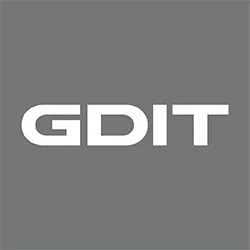In 2003, Congress passed the Medicare Modernization Act, which established a prescription drug benefit (Part D) within the federal Medicare program. This benefit subsidized the cost of prescription drugs for millions of Medicare beneficiaries — including millions of Baby Boomers aging into the program every year.
Prior to the program going into effect, GDIT was chosen to design, develop, validate, and implement a massive Drug Data Processing System (DDPS) that would process all Medicare covered and non-covered prescription drug events (PDEs) and related data about them. This data is important because it is used to validate and authenticate billions of dollars of Medicare payments for prescription drugs. Additionally, GDIT was chosen to develop the Payment Reconciliation System (PRS), which is a companion system to DDPS that compares prospective drug payment information to actual costs to perform various types of payment reconciliations.
Over the last decade while performing this critical work, GDIT has established itself as a trusted partner to the Centers for Medicare and Medicaid Services (CMS), which administers the Medicare program and oversees the DDPS and PRS. Our teams have been instrumental in helping the agency on a host of modernization initiatives.
The most recent modernization effort began in 2016, when the GDIT team observed a 37% increase in incoming PDE volume from 2012 to 2015. This coincided with a growing number of system contention and bottleneck issues on the mainframe. The GDIT team began exploring innovative solutions to address these issues. This included Hadoop and AWS Redshift proofs of concept (POCs) along with an accompanying white paper, which captured the results. Eventually, the GDIT team, in consultation with the CMS/DDPS leadership team, selected the CMS AWS Cloud services as the most efficient and cost-effective solution.
The GDIT team worked with CMS to develop and implement a three-phased mainframe-to-AWS migration approach designed to minimize risk as well as impacts to stakeholders. As part of this effort, the GDIT team also took on the challenge to start its DevSecOps pipeline and transition from waterfall to the SAFe Agile methodology. Throughout the phases, the team matured its DevSecOps and SAFe Agile processes, ensuring a smooth and timely migration.
At every step of the way, the GDIT team collaborated with CMS and continued to conduct other POCs to assess the efficacy of new cloud-based tools and technologies (e.g., Databricks, AWS Lambda, SonarQube, and Jenkins). In addition, throughout this large-scale effort, the team shared its acquired knowledge, lessons learned, and best practices with CMS and other Medicare Enrollment Payment Systems (MEPS) contractors, to assist them in their own migration efforts.
In June 2021, GDIT successfully completed the migration project on time and on budget. Key highlights of the effort are as follows:
This was the first AWS migration among the many MEPS programs, which allowed DDPS to lead the way on several fronts, including Agile, DevSecOps, and Cloud application development.
After the full migration, DDPS realized a 35 percent reduction in overall storage requirements and a ~60 percent reduction in PDE processing run time.
Other notable improvements include an 82% savings in National Drug Code (NDC) Cycle processing time and a ~20% reduction in the time required for operational tasks associated with month-end reports.
PRS was the most recently migrated system. Based on the results from integration testing, performance for PRS is expected to improve by 50%.
We delivered costs savings through auto-scaling and auto-termination in workloads and by utilizing spot instances to reduce EC2 instance costs.
This implementation has added more system capabilities allowing the GDIT team to perform advanced data analytics using artificial intelligence (AI) and machine learning efficiently and cost-effectively.
Together with CMS leaders, the GDIT team planned and executed the migration with no business operations impact and had zero moderate or high-severity-level defects post implementation.
After the very first phase of the project, we were able to eliminate significant mainframe system contention issues, thereby addressing our biggest problems first.
This project is one example of how GDIT regularly partners with clients to develop a vision, define a roadmap, and bring it to life strategically and tactically. Collaboration was key throughout the effort and extended beyond our teams and customers to other contractors in the MEPS group. This led to perfect CPAR scores from CMS and increased, enhanced ability for CMS to deliver on its mission for millions of Americans who rely on the Medicare for their prescription medications.
We were proud to support CMS on this important endeavor and look forward to ensuring its cloud objectives remain achievable, beneficial, and expertly executed.






